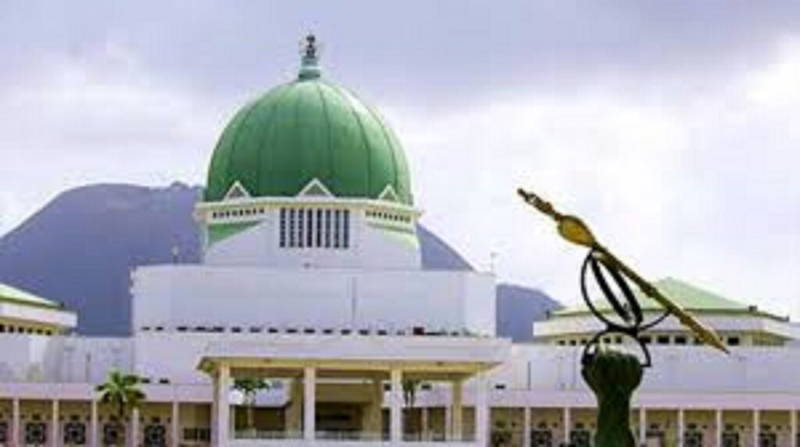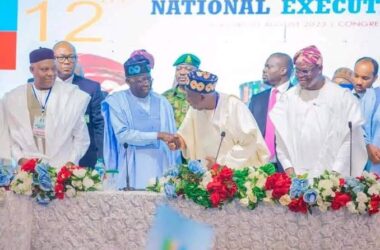As the National Assembly resumes activities after its extended break, a serious political confrontation has broken out between the House of Representatives and the Benue State Government over the rising number of violent attacks in the state.
The Deputy Spokesman of the House, Philip Agbese, has strongly criticized Benue State Governor, Rev. Fr. Hyacinth Alia, accusing him of neglecting the state’s anti-open grazing law, which he claimed had previously helped to reduce attacks by armed herders.
According to Agbese, the governor’s inaction has contributed to the deaths of dozens of residents in the Ukum and Logo local government areas in recent weeks. Reports say at least 56 people have been killed.
He said, “As we resume tomorrow (Tuesday), we are prepared to tackle squarely the issue of insecurity across the country. We are tired of observing one-minute silence in honour of the dead all the time. Like the Speaker, the Right Honourable Tajudeen Abbas always says, the life of every Nigerian is very important to the 10th National Assembly.
“To bring these issues to the attention of the government through urgent public importance is not a question we should be asking ourselves now. We want to see action, we want to see Nigeria secure so that everyone can move freely without fear of being attacked or killed.
“During our sectoral engagement with security chiefs not long ago, they promised action, and we saw a reduction in these attacks. But that was then.
“Things have worsened again, and we cannot continue. We hope to engage them again, and if we are convinced that they don’t have fresh ideas on how to address the challenge of insecurity, we will recommend to Mr President to relieve them of their duties and appoint fresh hands to step in.”
Agbese also commended the leadership of the House, saying, “Since we came on board in June 2023, Speaker Abbas has continued to prioritise the well-being of Nigerians, and as part of this parliament, we are not prepared to rest yet. Nigerians expect more from us and we can’t afford to let them down. What we must do as parliamentarians is to speak up when things are not going well.
“Killing Nigerians in their homes, farms or wherever should not be condoned. We are hopeful that as we resume our duty, we will lend our voices to the call for the safety of Nigerians wherever they are and that those tasked with maintaining peace and order, as well as the protection of lives and property, will step up their game and make this country secure for us all.”
On the incessant killings in Benue State over the past few months, Agbese said, “Before his (Gov Alia) election, there was an anti open grazing law in place. He completely abandoned that law and was busy claiming that there were no issues in Benue. The governor kept referring to the ECOWAS Protocol which guarantees free movement of people and goods within the West Africa sub region.
“Truth as that may sound, the ECOWAS Protocol does not make room for reckless human transit without documentation, and this is what some of us pointed out to the governor.
“Before now, when herders came into new settlements, the law required them to give information about themselves to the locals. They were known to the people, but Gov Alia came and changed everything. At a point, he said there was no problem in Benue. We are happy that he is beginning to realise that this is not the way to go.
Governor Alia, however, responded through his media aide, Solomon Iorpev, dismissing the claims. He said, “I don’t like to respond to those who do not know their right hand from their left hand because it’s only in a military regime that you hear about suspension of laws without following due process.” Iorpev added that the governor has not abandoned the anti-open grazing law and is committed to enforcing it within legal boundaries.
The disagreement escalated as the House Committee on Public Petitions summoned both Governor Alia and his Zamfara counterpart, Dauda Lawal, to appear before it on Thursday, May 8. The governors and their respective state assemblies were asked to justify why their legislative functions should not be taken over by the National Assembly. The summons followed a petition from a civil rights group, Guardians of Democracy and Rule of Law.
Speaker of the Benue House of Assembly, Dajoh Hyacinth, confirmed that the invitation had been received and would be presented during the Assembly’s Tuesday session for deliberation.
In Zamfara, tensions are also rising. A group of nine lawmakers loyal to Hon. Bashar Gummi vowed to continue legislative work despite alleged threats and legal pressure from the state government. These lawmakers accused the administration of using judicial tactics to intimidate them and threatened legal action in response.
Meanwhile, in Abuja, the Senate is also set to address the growing security crisis in several states including Benue, Plateau, and Zamfara. Senate Leader Opeyemi Bamidele said that tackling insecurity and passing President Tinubu’s tax reform bills will be top priorities upon resumption.
The Senate also plans to revisit key legislative items such as the Electoral Act and the 1999 Constitution amendment. Discussions are expected to include ways to strengthen national security and stabilize politically tense regions like Rivers State.









